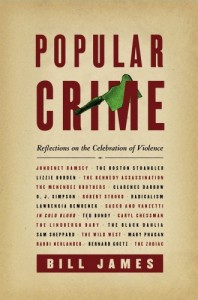Bill James, the statistics outsider who brought sabermetrics to baseball’s mainstream and helped deliver two world championships to a title-starved Boston Red Sox franchise, has an abiding interest that may be even deeper than the National Pastime: crime–why people commit evil deeds and why we’re obsessed with the topic. Chuck Klosterman of Grantland just interviewed James about his new book on the topic, Popular Crime, and they discussed whether everyone is capable of murder. An excerpt:
“OK, so tell me this: In 1984, O.J. Simpson had not (allegedly) killed anyone. But was he already a murderer? Did that capacity to kill already exist within him, a decade before Nicole Brown Simpson was dead?
I think the capacity to commit terrible acts exists in all of us, myself included. I think we could all do things we’d be very ashamed of. I’m sure that capacity was within O.J. in 1984, as it was in myself in 1984.
You’re speaking hypothetically, but I’m curious: What would have to happen in order to make you commit a murder? Can you picture a scenario where you kill someone?
For most of us who are living successful lives, we systematically steer away from those situations. We steer away from those stresses. But, you know … if the kids have to eat and there’s no money in the bank, who knows what you might do? So you try to keep money in the bank. You try to avoid that circumstance. If a woman drives you crazy, you’ll do things that you wouldn’t normally do — so you try to stay away from women who make you crazy. Or drugs: Any one of us can become a drug addict. And once you do, you will kill somebody to get drugs. So maybe that’s the way to think about this: Any real drug addict will kill you in order to get drugs.
Wait — are you suggesting the addiction to cocaine or heroin is greater than whatever internally stops us from committing murder?
Sure. But what I’m really trying to say is that this is probably how we need to think about these types of things: It is not as if we walk through one doorway and decide that murder is acceptable. You have to walk through many doorways. The first doorway leads to a party, where people are doing drugs and having fun. The second doorway leads to more partying. It’s a long, long series of doorways, until you end up in a room where a terrible thing happens. So the question is, ‘How many doorways away are you?’ It’s not a question about a person’s capacity to commit a murder. It’s a question of how many doorways we keep between ourselves and that situation.”
Tags: Bill James, Chuck Klosterman

